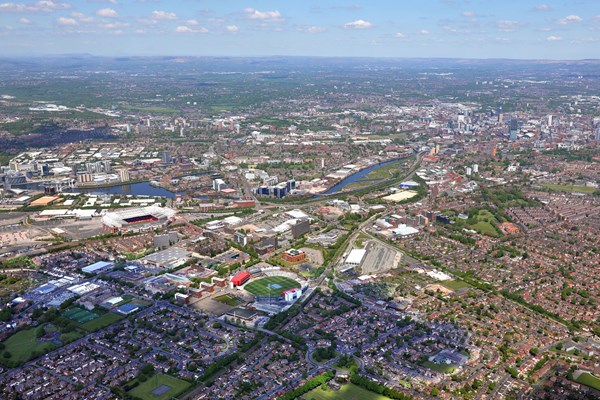
Social Sense – Greater Moments
Salford-based SME Social Sense has created an app which helps older people and their carers to find, record and reflect on the moments in life that really matter.
Gary Lovatt, Managing Director, explains how this innovation supports mental health and well-being, as well as improving the experience and effectiveness of carers.
Why did you apply for the GMCA Foundational Economy Innovation Fund?
While we are socially driven, we are a private company and that excludes us from a lot of funding opportunities. There are competitive tenders out there, but of course they're difficult to win. There's not much funding that a company like us can apply for, so when this chance came along it was fantastic. We knew that if we were successful, we’d be able to improve our ‘Greater Moments’ app so that more people can benefit from it.
Tell us about your project
We initially built ‘Greater Moments’ to better connect people with dementia and their carers to local activities and events, because these kinds of connections are known to improve well-being. And we wanted to enable users to have a way of capturing these special moments, recording their moods, thoughts and feelings – both for their own benefit, and that of their families and carers.
Thanks to the funding we’ve been able to enhance the app, making it suitable for all older adults, not just people with dementia. We’ve collaborated with Castlerea House, a care home in Salford which was largely paper-based, to trial the app there, helping staff to find out what’s going on locally and to learn what actually makes a ‘good day’ for their residents – helping to shape positive future experiences. This collaboration is enabling us to make technical adaptations and refine the app into an even more useful tool.
What success have you had to date?
What really underlined the merit of ‘Greater Moments’ is when we had a day out with Castlerea House staff and residents at the Imperial War Museum North. From the data gathered through the app, we could see that the experience of being at the museum and taking part in meaningful activity had a markedly positive effect on their mood – feelings that often stayed with them for the rest of the day.
Similarly, we carried out another trial where we put butterfly gardens into care homes and asked the residents to interact with them, feed them, hold them and then eventually release them into the wild, all of which was recorded. What we’re doing is creating visibility for those activities and experiences that traditionally haven't been measured before, but which are so important.
What does the future hold for the project?
Ultimately, we want to see the app integrated into care home systems across Greater Manchester and nationally, making it easy for staff to instantly record resident activity and measure the well-being of individuals – taking some of the regulatory administration and reporting pressure off care workers and really enabling them to be present in the moment with their residents.
But more than simply improving efficiencies, we want the app to enhance the sense of purpose and meaning attached to care worker roles, beyond just receiving a salary, by giving staff proof that what they’re doing is making a genuine difference to people’s lives. Seeing this working in practice across chains of care homes is what success for this project looks like for us.



